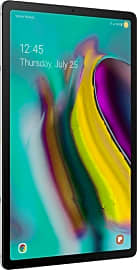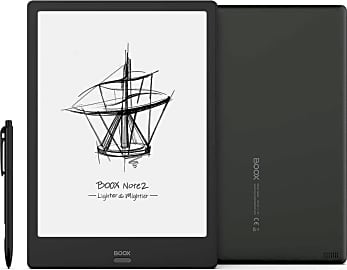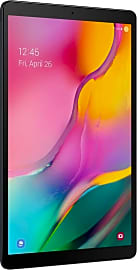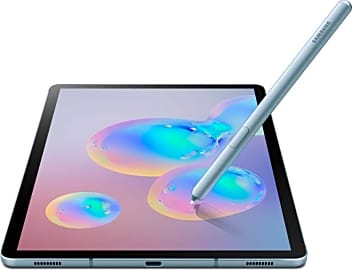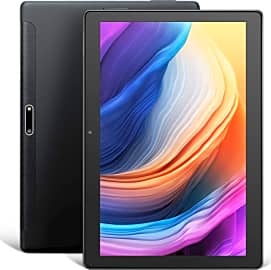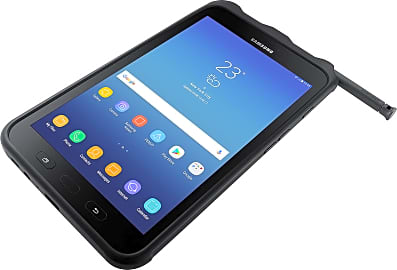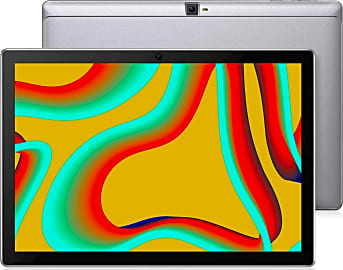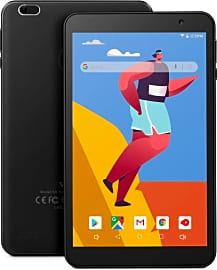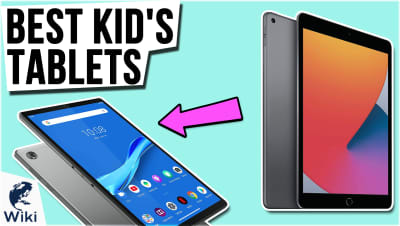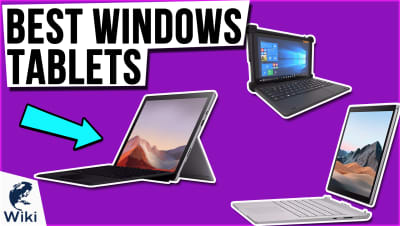The 10 Best Android Tablets

This wiki has been updated 38 times since it was first published in May of 2015. If you're a fan of versatile and customizable interfaces, then you might want to consider these powerful and capable Android tablets. They offer high performance, on-the-go Web browsing, high-definition video, crystal-clear book reading, tons of apps, decent sound for your music collection, and much more. They are complete multimedia entertainment systems in super-portable packages. When users buy our independently chosen editorial choices, we may earn commissions to help fund the Wiki.
Editor's Notes
July 12, 2020:
Thanks to the proliferation of both smartphones and high-powered convertible PCs, the tablet market isn't quite as huge as it once looked like it might be, especially for devices using the Android operating system. As such, the market has been somewhat dominated by one prominent company for a while. The Samsung Galaxy Tab S6 is inarguably the best-performing option on today's market, although it's quite expensive. The Samsung Galaxy S6 Lite does its best to fix that problem with a significantly lower price and the exclusion of just a few premium features that most users probably won't even notice. Alternately, the Samsung Galaxy Tab S5e is the previous-generation flagship, and it's still more than capable of proving fast and useful. To spend even less, look to the Samsung Galaxy Tab A, and if you need something especially durable, the Samsung Galaxy Active2 is worth considering.
Of course, they're not the only company in the game right now. The Lenovo Tab M10 Plus is particularly powerful and does not disappoint (in contrast to some of their other recent models, even), and the Boox Note2 is a good choice for those who want a top-quality device but aren't fans of Samsung's interface, no matter how refined it may be. The Boox is, as the name suggests, designed specifically for reading e-books, but it's also quite capable otherwise. And if you really don't want to spend much, the Dragon Touch Max10, Vankyo MatrixPad S8, and Vankyo MatrixPad S30 are all worthwhile choices. Although they are from lwesser-known manufacturers, they're particularly cost effective and can reliably run nearly anything in the Google Play Store.
August 28, 2019:
It's by no coincidence that the top three models in our current ranking come from the same companies represented in the top three on our previous ranking, as Samsung, Asus, and Huawei continue to make excellent tabs with specs that genuinely rival the likes of Apple's lineup. Almost all of the models on our previous list have been replaced, however, either by upgraded versions or by empty space left as their lineups have fallen behind — the only exception being Amazon's Fire HD 8, which merely fell to the last spot on our list. One of the most notable absences is Google, whose Pixel C was a fine machine, but has gotten a bit long in the tooth, and whose Pixel Slate is a contemporary 2-in-1, but exceeds the boundaries of a list dedicated exclusively to tablets.
Samsung held onto the number one spot with its S4, and there was some serious consideration of the S5e in this spot, but the 4 held out due primarily to its larger maximum internal memory and its slightly better processor speed, combining two quad-core processors to the 5's dual/hexa combination. In light of these differences, it didn't make sense to us to recommend the S5e as a budget alternative to the S4, and instead, we included the Samsung Tab A in that role, as it's a more complete step down in both capabilities and price, but offers plenty of functionality for its class.
Special Honors
InHand Custom Electronics If nothing on the market fulfills your company's needs just right, you may be able to work with InHand Electronics to get the device that's perfect for you. They offer a wide range of components and configurations designed with the corporate, industrial, and commercial user in mind. inhand.com
Zebra Solution This supplier has a number of highly durable, warehouse- and business-friendly designs that use either Windows or Android and are built to last for years. They will set you back more cash than the average consumer device, and you will have to place a special order with the manufacturer, but if you need a secure and reliable device, this is a good place to start. zebra.com
Android And You
As opposed to Apple's App Store — the market where Apple users purchase and download their apps — Android sports the Google Play Store.
Looking for something different than the Apple product experience? Well then you have come to the right place. Android offers you an excellent assortment of choices from a variety of manufacturers for your next tablet.
First, let us agree on what is meant by Android. Simply put, it is an open source operating system used for phones and tablets that is owned by Google. Since its inception eight years ago, Android has made leaps and bounds in advancements with its software, and newer versions of the system appear on the market every six to eight months.
So, if Android is simply an operating system, who makes the physical products? Anyone can! Whereas Apple's phones and tablets must use Apple's iOS, Android can run on any smartphone or tablet manufactured by someone besides Apple. The most popular manufacturers that run Android include Samsung, Asus, LG, Lenovo, and Huawei.
The Android OS goes through updates on a consistent basis; every six months approximately. The versions are labelled after sweets in alphabetical order — cupcake followed by donut, for example. Each updated version will address issues with previous versions, perform faster, and offer more apps.
As opposed to Apple's App Store — the market where Apple users purchase and download their apps — Android sports the Google Play Store. Many apps will be compatible with both markets, but it is definitely not guaranteed.
Most Apple users will boast that iOS is more secure over Android OS, which is more susceptible to viruses. Recent evidence suggests that is no longer true.
Why You Want The Tablet
A tablet computer is a thin, flat mobile computer that has a touchscreen display. The more recent models will almost certainly include built-in WiFi capabilities, a digital camera, and even styluses.
Any typing done on a tablet will be virtual, however, there are quite a few Bluetooth-enabled options on the market, both from the OEM or an aftermarket manufacturer.
Tablets may include additional features that can sway your decision. Having access to a cellular network is a big factor for on-the-go consumers. If a tablet is bound by a built-in WiFi connection only, internet connectivity will be limited. A network-enabled tablet will connect everywhere your average smartphone can and in some rare cases will even allow you to make phone calls.
Storage space is another feature that may be the game changer. Some tablets will include a microSD card slot for additional storage. This is very important if you want to watch high-resolution videos but don't want or aren't able to stream them directly to your device, as such files can take up quite a bit of room. If additional removable space is not an option, then you're stuck with the built-in storage, and that's not always enough.
Tablets are limited in some functions. They generally can't run resource-intensive applications quickly, for one thing. Tablets will not include a tactile keyboard, either. Any typing done on a tablet will be virtual, however, there are quite a few Bluetooth-enabled options on the market, both from the OEM or an aftermarket manufacturer. Typing on a table is not optimal for large writing sessions, though, due mostly to their small screen size
You can expect to handle all emails on your tablet. Since Android tablets are owned by Google, the OS can link you directly to Youtube (another platform owned by Google), Gmail, and Google Play Store accounts. The downside is that without making a dedicated account, most of the functionality is limited.
A Very Brief History Of The Tablet
The first editions of the tablet were e-book readers, simply designed in black and white to make your book reading experience convenient and lightweight. The Newton Message Pad, created by Apple, was first introduced in 1993, but it wasn't until the release of Apple's iPad in 2010 that the tablet industry skyrocketed.
Apple and every other computer and smartphone manufacturer raced to improve the tablet.
Apple and every other computer and smartphone manufacturer raced to improve the tablet. Increased memory, resolution, and storage all excelled in order to create a better tablet. Android's response was the Nexus, a smartphone and tablet model that ran Android OS, which became the flagship for Android devices.
As the tech war between Apple and Android rages on, the true victor is the consumer. These companies noticed the gap left by the sleekness of smart phones and the expansiveness of the computer which was filled by the "Goldilocks" tablet. It fits oh-so-right. The tech advancements of the tablet are similar to phones and computers; newer models are pumped out every year which offer better resolution, memory, and software capabilities.
Interestingly, the tablet as a mobile computer was predicted in 2001: A Space Odyssey, over thirty years before tablet prototypes emerged.
The tech industry is a fierce and fickle mistress; no one can say for certain which trend will take off. Most companies believe the mini-tablet will soon outperform both laptop computers and smartphones, rising to the dominant medium in the next several years.



